|
By Al Player(s): 1 Platform(s): PlayStation 4, Nintendo Switch Process of Elimination is an adventure game that tosses in visual novel and board game elements into the mix. It is both developed and published by Nippon Ichi Software and is finally available for both the PlayStation 4 and the Nintendo Switch in the West following a Japanese release back in 2021. One has to ask if this title was worth the wait, and perhaps also tackle a few issues concerning a comparison to a certain long-running gaming franchise. Looks like we have a lot to cover here, so let's do just that and see if this mystery is one you're going to want to solve yourself! Process of Elimination puts you in the shoes of Wato Hojo, AKA the "Incompetent Detective", the newest member of the Detective Alliance. Even though he's a fresh recruit, he's quickly added to a special team of high-ranking DA members to solve the case of the "Quartering Duke", a serial killer whose 100+ victim murder spree has thrown the country into chaos. This team is made up of 14 detectives, all with their own traits, personalities, and skills. The cast of colorful characters include Renegade Detective, a detective who murdered his parents and wears a collar rigged to explode to keep him in line, Techie Detective, who is wheelchair-bound but has several small robot "friends" who help him in investigations, Armor Detective, who is clad in impenetrable armor from head-to-toe, Bookworm Detective, a young child who... is a bookworm, and several others that we don't have time to fully get into here. This team gathers on "Morgue", the Detective Alliance's island headquarters, and quickly find that the Quartering Duke is not only one step ahead of them, but is also taking his murder spree to the DA directly. With the stage set matters quickly turn from foiling the Quartering Duke to simply trying to stay alive. The group are slowly picked off, and it falls to the remaining DA members to figure out who is committing the murders while also trying to find a way safely off the island. Since the murders and deaths happen within a rather closed setting, you quickly find yourself investigating and accusing your former allies and this "process of elimination" (See what I did there?) eventually reveals the truth behind the Quartering Duke's killing spree. Seeing as there is a large cast of unique, if somewhat stereotypical, characters who go around solving murders within their group that are all tied to a faceless mastermind, a certain comparison quickly rises to the top: the Danganronpa series. While I don't wholly agree with this comparison overall, I must admit that it was also my first impression upon booting up the game. Looking over comments on the trailers that dropped before the game's release you can see many also voice this comparison. We'll talk a bit more about this later, but let's look at one of the biggest elements that separate it from anything else in the genre. At its heart Process of Elimination is a visual novel that offers the standard multiple choice breaks that break up long story sections, but unlike the Danganronpa series (which itself borrows heavily from the Phoenix Wright series) Process of Elimination tasks you to solve murders through "Investigation Simulations". These investigation segments see you use your iPad like device to command the detectives to search for clues, move from room to room, examine evidence, and avoid traps. These actions all take place on a Clue-like board that changes with each case. You aren't allowed to control all detectives at once, and some investigations even require you to guess what the characters you have no control over choose to do so you can react accordingly. Certain actions, like discovering a big break in the case or finding a key piece of evidence, allow the investigation to continue and grants you the ability to control more detectives. You'll need to control them too as there is both a time limit to these sections, and the detectives have the ability to aid one another. There are actually several ways to complete these sections, and they come complete with red herrings, evidence that you might not want to pick up, environmental hazards, and even optional keywords you can collect to flesh out the universe. It's all rather unique and pretty hard to describe until you sit down and play it. These investigation sections are usually bookended by scenes where you're tasked with connecting the dots on what really is going on with each case. These are done with multiple choice questions with the series that follow the investigation ultimately leading towards how your overall performance is grated. Oh yeah, there's grading here, and even though you can complete investigations in a number of ways, there are optimal ways through them. You're also given only about 8 turns to complete the investigation or it's an instant game over. You can also get a game over by getting detectives, including yourself, killed by hazards or traps. These game overs force you to restart the investigation, but I never found it frustrating even though it happened a handful of times. Speaking of frustration though, let's talk about something that did irk me a bit. You're given a tutorial on these sections in the game's first chapter by the Detective Alliance's chief member, "Ideal Detective". Ideal Detective also becomes your partner throughout the rest of the game but hopefully you paid close attention to that first tutorial as, beyond doing it again, there isn't any sort of in-game tutorial or glossary you can refer to later. This might be a complaint only I have, but I found the second investigation much more difficult than it needed to be simply because I had forgotten important gameplay mechanics. It doesn't help that most of these mechanics are anything but intuitive and require actions to be completed in a certain order to work. This gripe aside, these segments really set Process of Elimination apart and made me want to keep playing to see what new things were added to the next one. Let's circle back to the story for a bit though and discuss how it ties in with the investigation simulations. I really want to be careful when it comes to spoiling story elements as I feel that it’s the game's strongest point. I'll refrain from saying which detectives die, why they die, or who does some killing, but this leads to the biggest problem I had with the game. While Process of Elimination has that really cool board game investigation part that I just outlined, it's marred by the fact that characters are picked off in pairs in every chapter. By the time the game was nearing the end I found myself wanting to return to the earlier levels where more detectives were actively participating in the investigations. One can say that this helps ramp up difficulty but it also makes it hard to really rely on any particular detectives as they might be next on the chopping block. Like Workaholic Detective's stats? Better hope he survives. Want to see what funny things Gourmet Detective has to say when examining a certain piece of evidence? Let's hope she's not the killer. Want to get to the point where Posh Detective doesn't just go off and do her own thing? Let's hope she survives until then! It can all be a bit annoying, but I guess that could be the point as you're not really expected to get too tied to any situation to avoid any sense of safety. Ironically, the point where the game most closely resembles Danganronpa the most (with its large cast being are picked off one-by-one) is arguably its weakest point. I usually don't talk about translation but there were a few things that really bothered me. I mentioned some of the detectives' names earlier, but let's cover a few more specifically. First, there's Doleful Detective. I'm not sure who would use the word "doleful" in anything today as I can honestly say that I don't think I've heard that word used outside of reading assignments in school. Speaking of odd word choices, Ideal Detective and Incompetent Detective both share the "Denouement" skill which helps prevent murders in-universe. That's a word I've only ever used when I'm trying to pad out an essay. I'm willing to bet others are in the same boat on these terms too. Also, Rowdy Detective was originally "Yamato Detective", and Downtown Detective was originally "Shibuya Detective", both get name changes here that feel somewhat unnecessary. Yamato might be a bit harder to covey without a translation, but simply naming her "Rowdy" feels like they just gave up trying to think of a more accurate descriptor. Changing "Shibuya" to "Downtown" is also a weird choice as not only is Shibuya well enough known that it could've just been kept as is, "Downtown" has completely different connotations, devoid of the fashionista implications that Shibuya has. Translation is a hard job, and I am no expert in Japanese, but these aren't the only translation choices I felt didn't quite fit. Maybe a bad take, but NIS has had some really good translation work recently and this game seems to be going against that streak. Voice acting is top notch here, and just about everything in-game is voiced. There is no English dub here, a point of contention for some perhaps, but one that didn't bother me in the slightest. I think I would've played this game in the original Japanese even if a dub was present but I must admit that this probably does harm the game's accessibility a bit. Also, if the game did have a dub track I might never have noticed the translation oddities mentioned above. Music is mostly good, but there are very few songs that stand out. As a matter of fact there were a couple tracks that I found particularly grating whenever they came up. These tracks were mainly ones that are meant to build up suspense, so I had a bit of mismatched feelings at times when the game started to ramp up in intensity. Nothing close to a deal breaker, but we need some negatives to balance things out right? I'll tackle controls and graphics at once here as I don't have a lot to say about either. Controls are about what you'd expect in any title of this kind; they work and they're not overly complicated. I will say that the investigation segments do have a chunkiness to the menus and actions, but that's not really a fault of the controls. One odd thing worth mentioning is that several buttons are left unassigned, namely the directional buttons that pop up on screen whenever you touch them, and this is odd since there are several functions (looking at you quick save and quick load) that are left unassigned by default. Surely with half the controller going unused these functions could've received official assignments. Right? Graphics on the other hand are great, as long as your expectations are set correctly. I loved every character's design, and even though the art style seemed a little too sharp at times (as in everyone seems to have clothing or hair that come to points), I found myself going back to the gallery to check out some of the event illustrations in the gallery. Ideal Detective was a clear favorite, and even seemingly drab characters like Armor Detective manage to come off as unique. The only character design I was not a fan of was Wato/Incompetent Detective himself since he has a really silly hairstyle that I could never get over. Thankfully he's rarely on-screen since you play as him, but whenever I saw him I cringed a little. Character designs aside, things get a bit more dicey as there isn't a lot of variety when it comes to locations, nor is there a lot of variety when it comes to character animations. I've played some visual novels that have a budget feel due to points like these, and while that isn't really the case here, it is something that you'll probably come to notice by the end of the game. Also, going back to the idea of detectives getting killed off, I guess it's also obvious that if you find a particular character cool, or nice to look at, it's best to not get too attached as they might not be long for this world. While I loved the game and its story, I must admit that the experience is rather short all things considered, and even with a sort of New Game+ mode, it's hard to want to go through it a second time. It's true that can be said of any heavily narrative-driven game, especially ones containing visual novel elements, but it's a bit different here considering the investigation sections. You can definitely replay those to get better outcomes, find all the keywords, and see important scenes with different detectives. Some things can only be seen in the second time around, but I feel that most people will be satisfied with one full playthrough. It's definitely an experience and story that will pull you to its shocking conclusion, and it's well worth the price of entry, but nothing short of a sequel will probably get people to pick this one up again. The game does leave things open for a sequel though, so here's hoping one does eventually come down the pipeline. Process of Elimination is a really cool game that just barely misses the mark on being perfect. The comparisons to Danganronpa are not only superficial, but the elements it shares most directly with that series are probably my least favorite aspects of the game. If this game does get a sequel I hope that they move away from killing off most of the cast and maybe focus more on a team of detectives solving outside cases. It'd probably not be living up to its title though... so who knows. All I can say for sure is that I wholly recommend this game, and I might also have a sudden desire to play Clue for some reason. Here's hoping that this game leads to an entire franchise, maybe even a manga or anime adaption, in the future. It so, I hope it does a bit more to stand out on its own, and blow any comparisons to other media out of the water. For More Information on Process of Elimination: https://nisamerica.com/process-of-elimination/ Story: A Gameplay: B Graphics: A- Sound: B- Value: A OVERALL: B Pros: + Both story and characters are great, and they really pull you into the game. + Collectables, optional scenes, and a sort of New Game+ mode add to the core experience. + The investigation sections break up what would be a pretty simple game otherwise, and are the game's best asset. + Voice acting is great, even with the lack of an English dub. + A surprising amount of variety in the investigation segments can lead to replayability. +/- It's hard to NOT make the Danganronpa comparisons. Cons: - The investigation segments are a little clunky and could really benefit from an in-game tutorial menu where you can review the game mechanics. - Seeing characters die off can be hard, especially if they've become favorites, but I guess this is the core of the game. - Most of the character designs are great, but there isn't much variety in character animations, backgrounds, or settings. - Odd choices in controls, such as not all functions being mapped to unused buttons by default, are somewhat mind-boggling. A copy of this game was provided to us free-of-charge by the publisher for the purpose of this review. This did not affect our review in any way. |
Search
Contributors◆ Angie
◆ Emily ◆ J.D. ◆ Janette ◆ JT ◆ Manuel ◆ Nestor ◆ Rose ◆ Sylvia ◆ Teepu ◆ Tiffany ◆ Winfield Archives
February 2025
|
© 2014-2025 A-to-J Connections. All Rights Reserved.

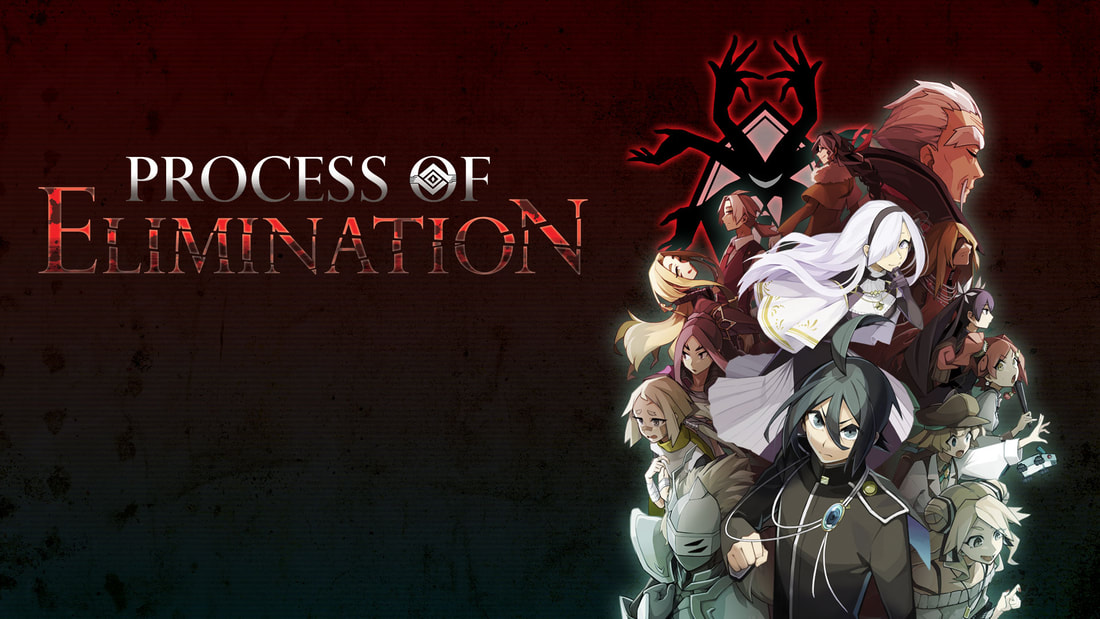


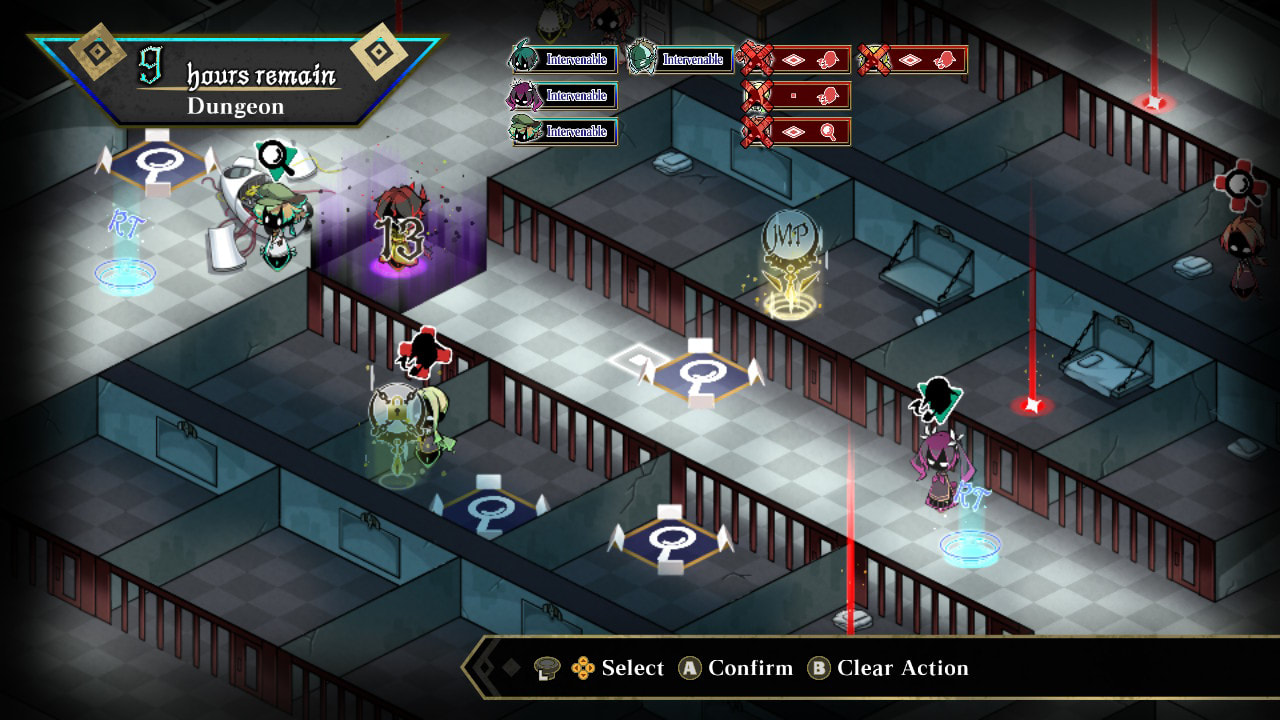
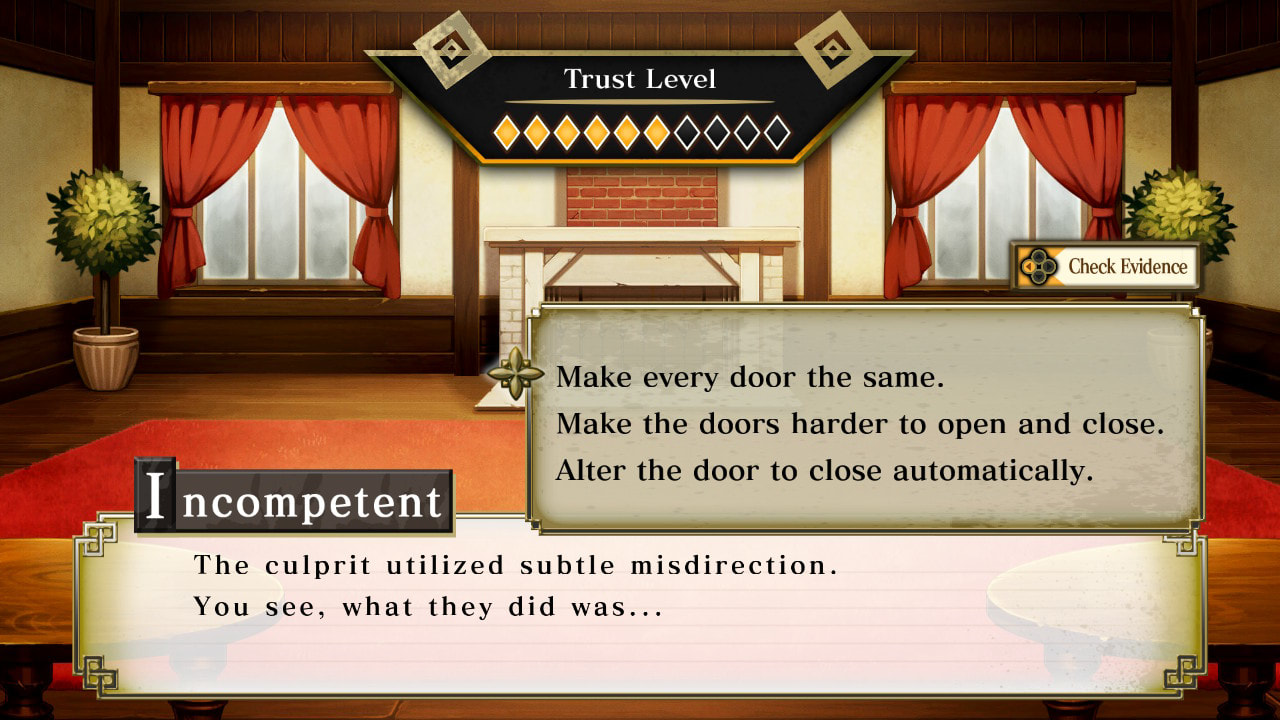
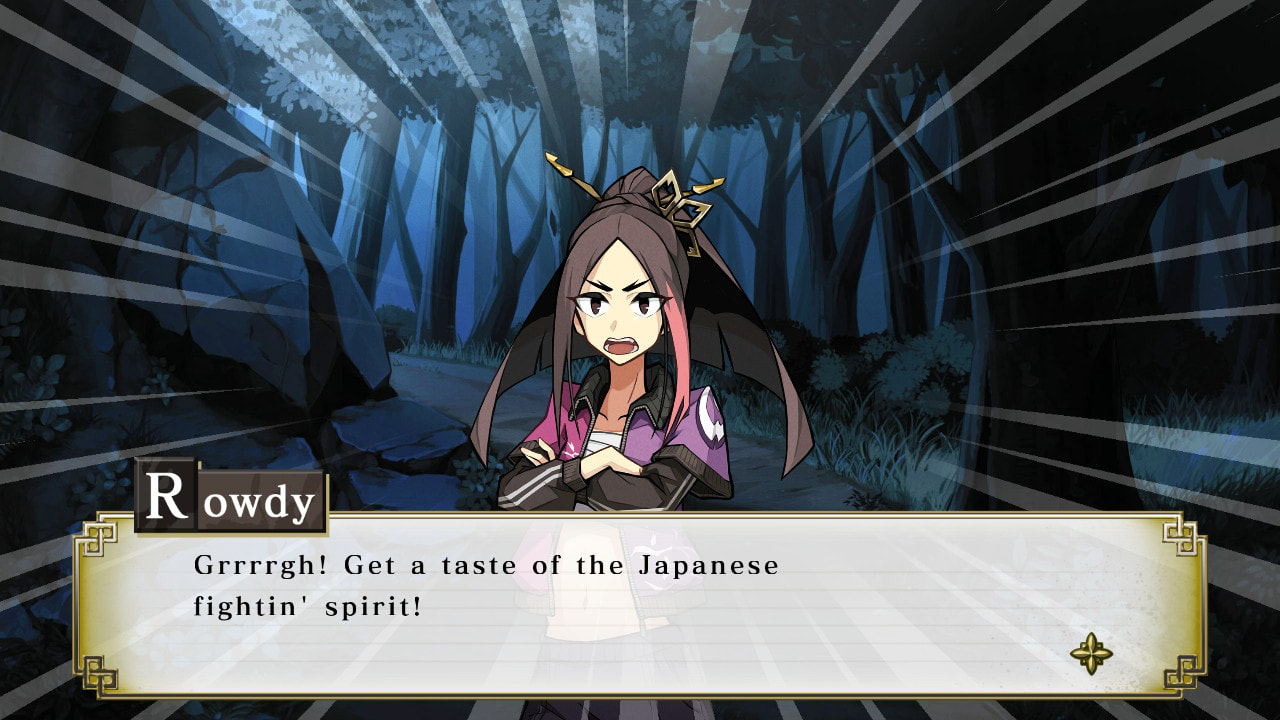

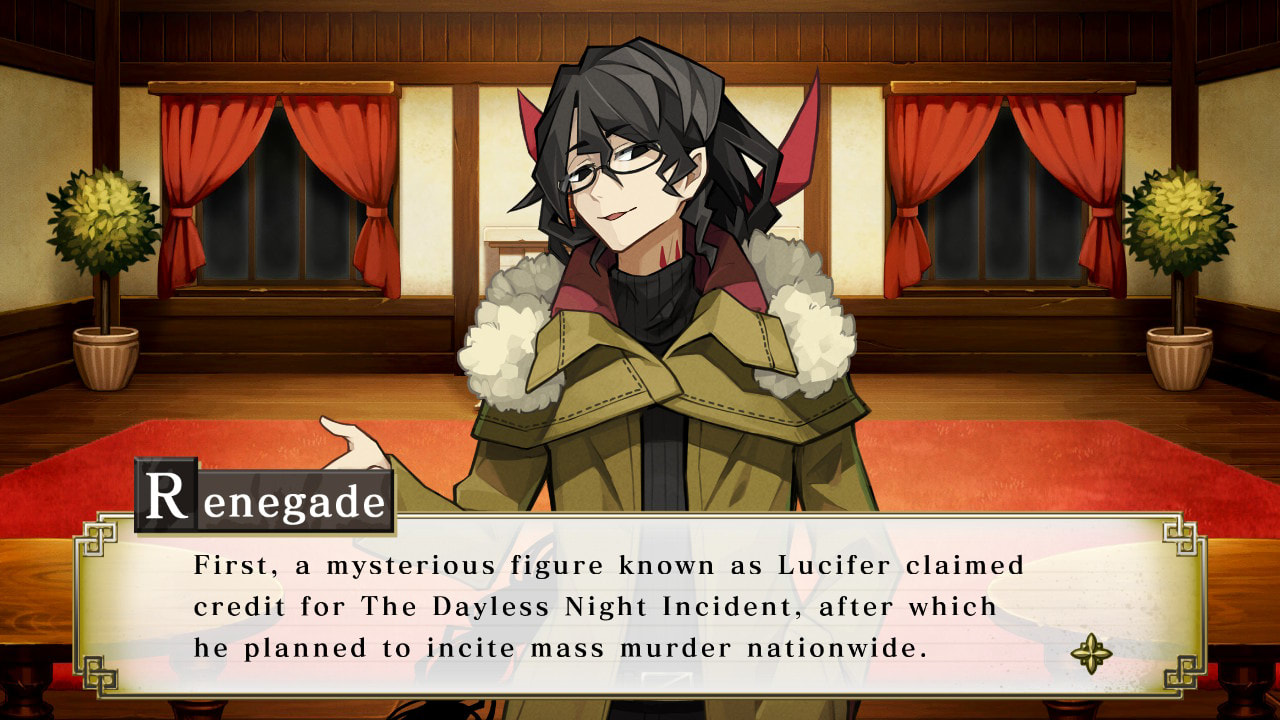
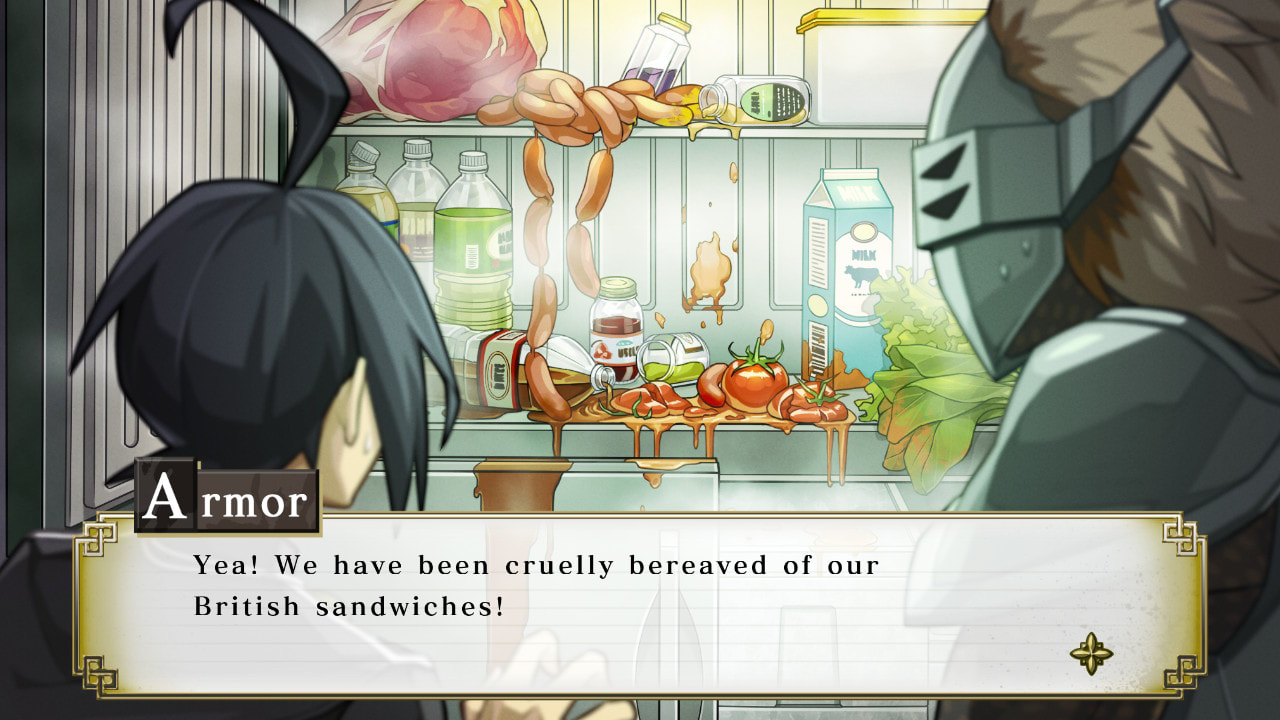
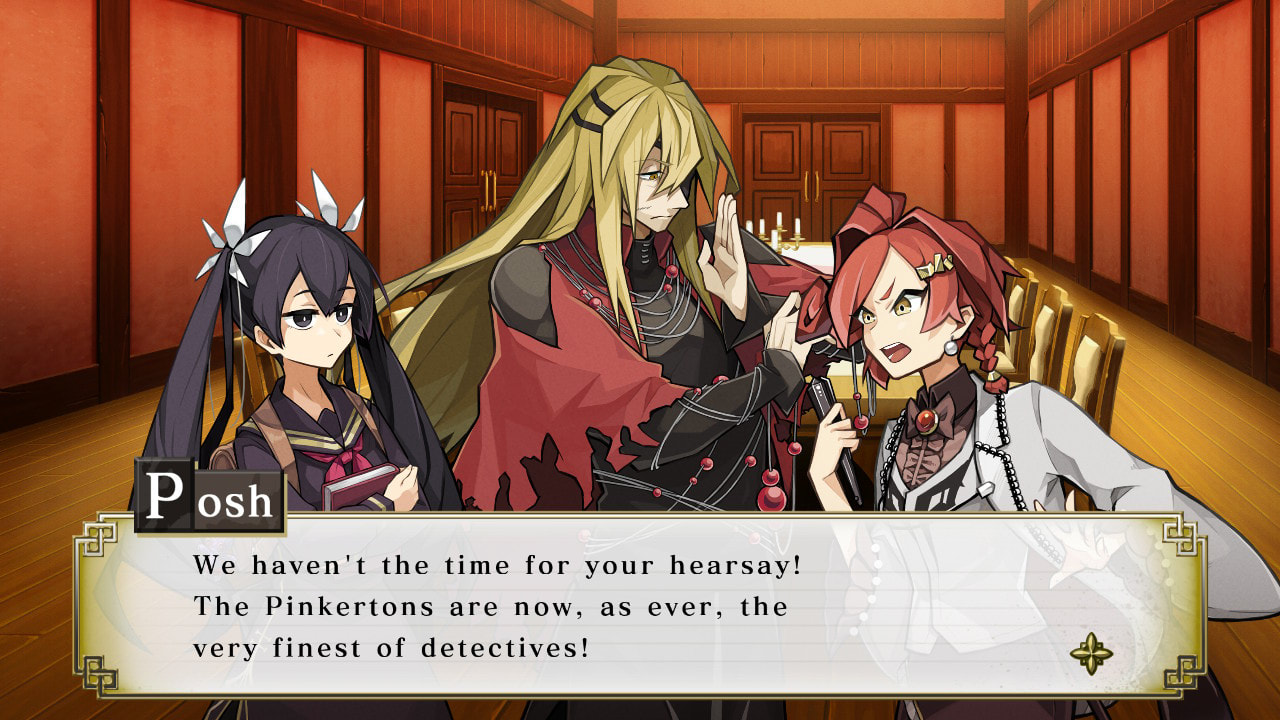

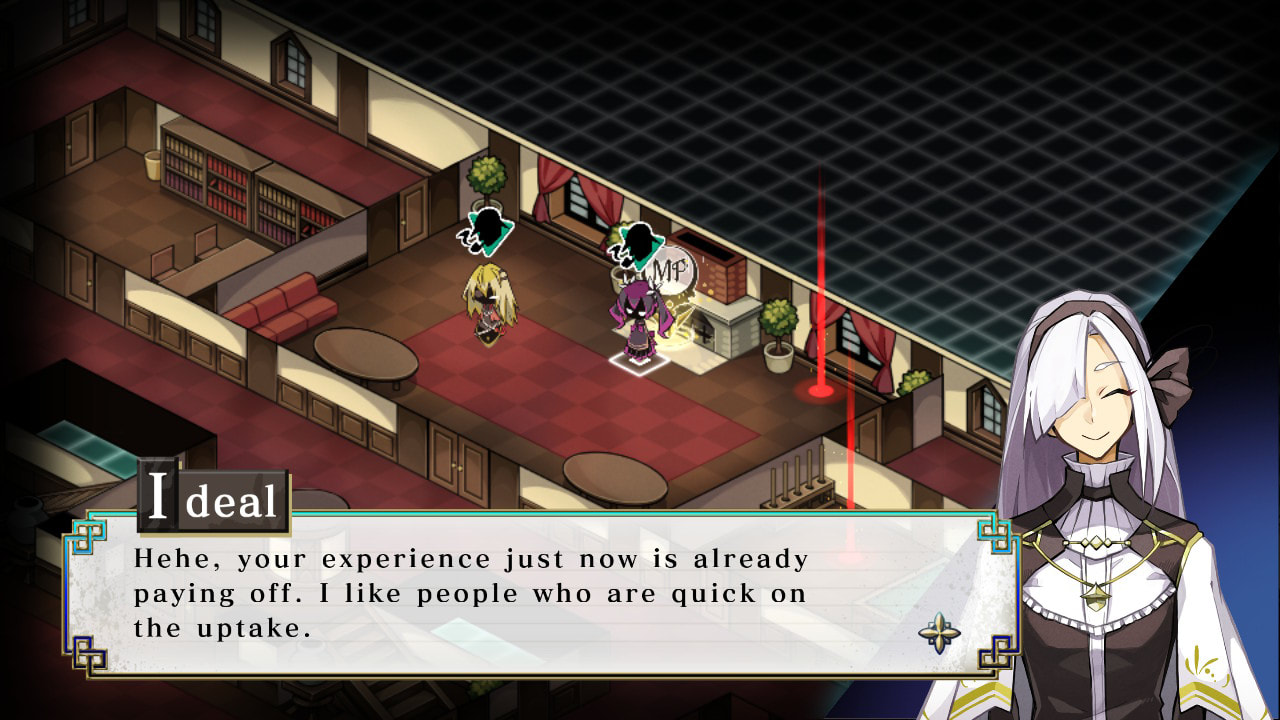
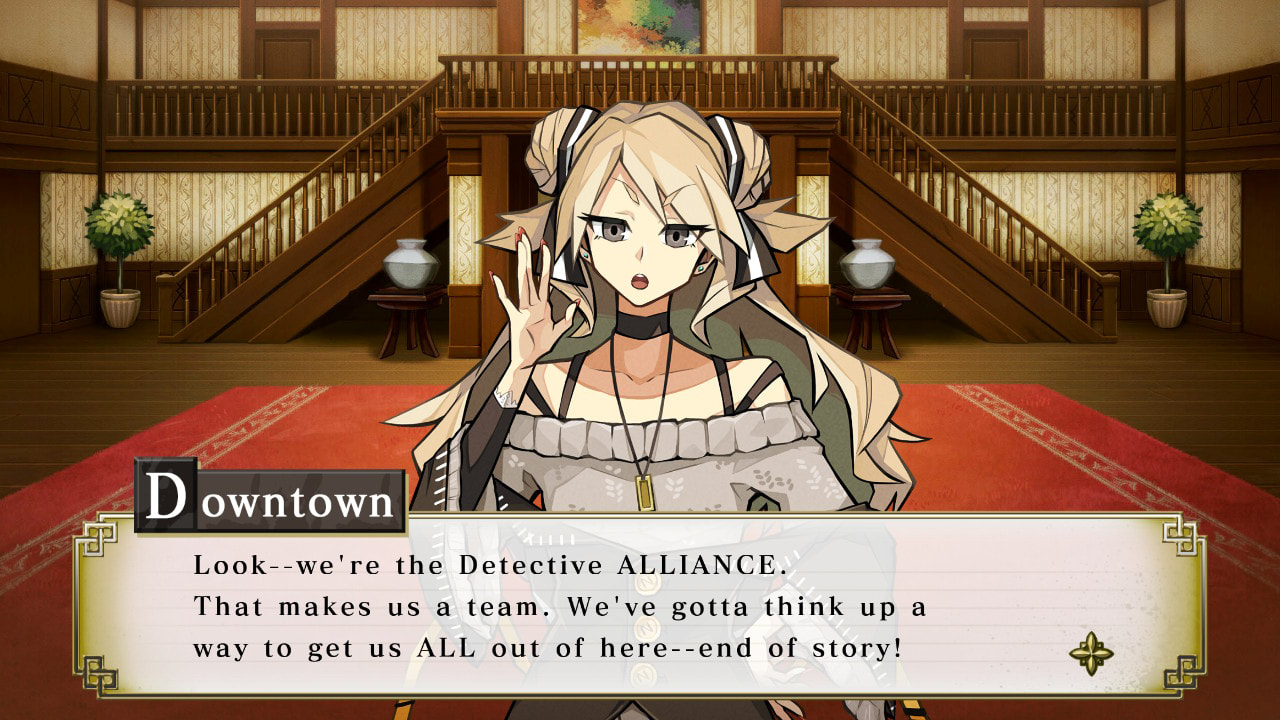
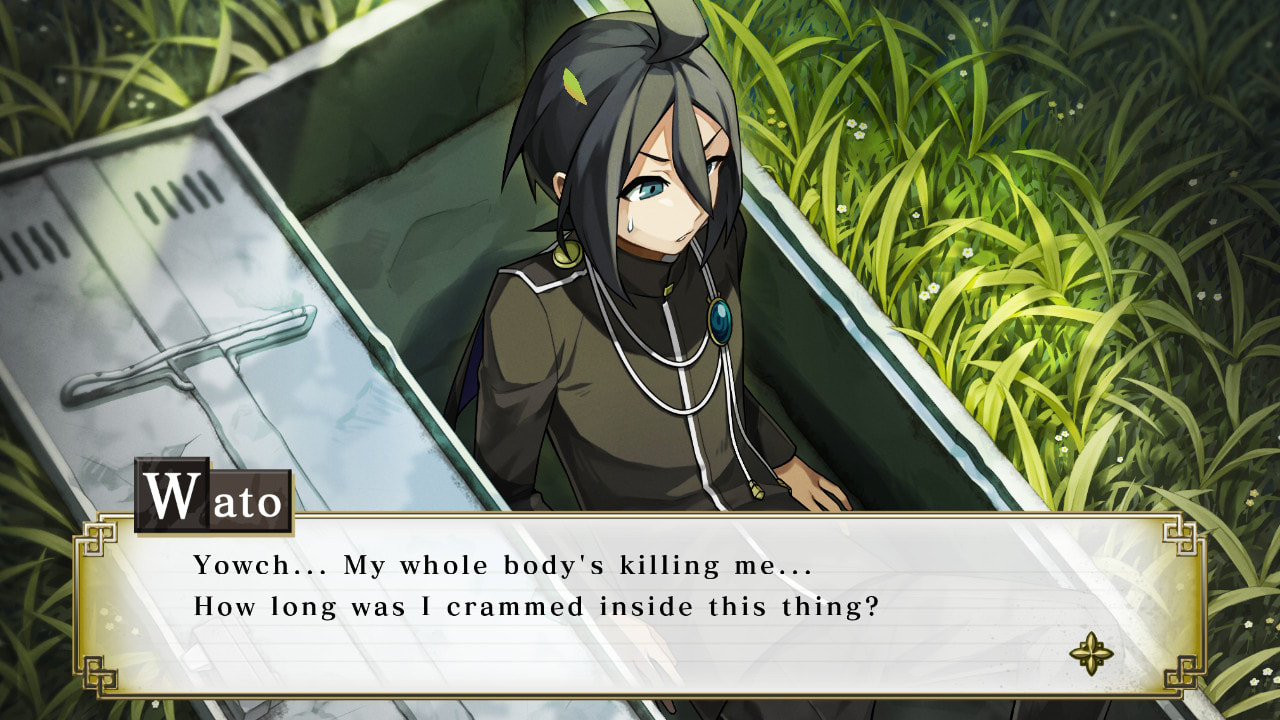
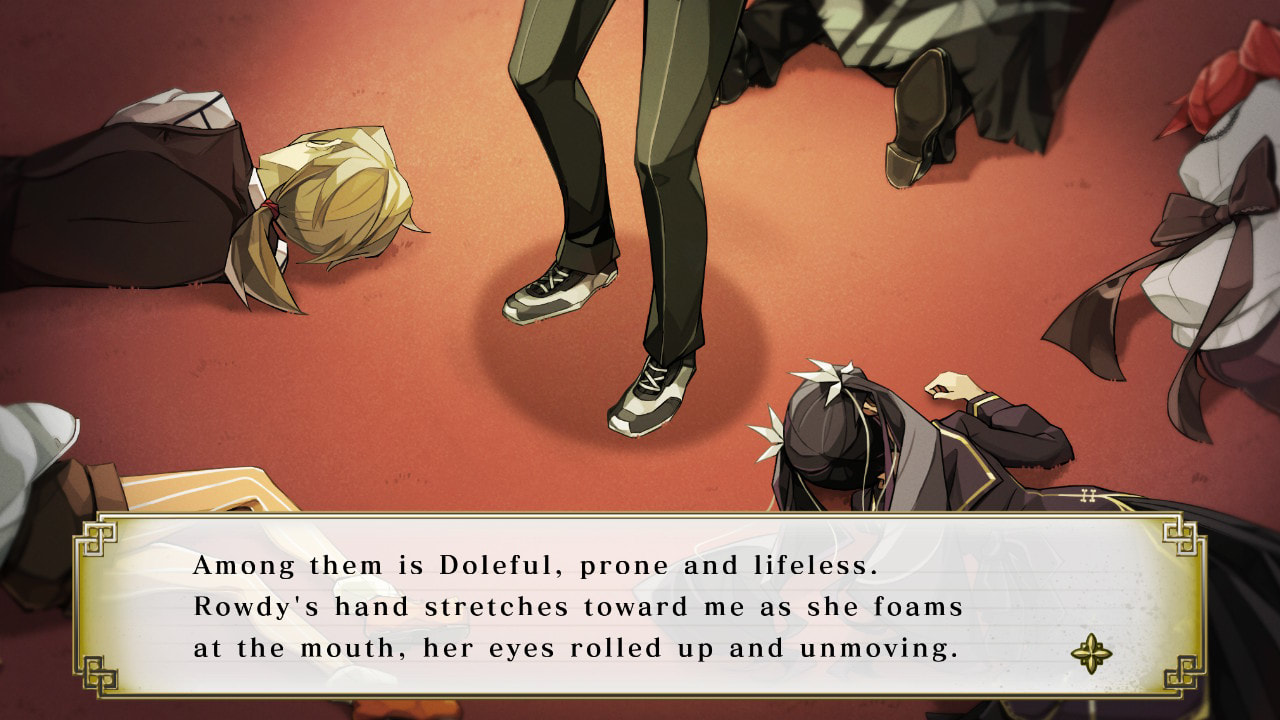


 RSS Feed
RSS Feed